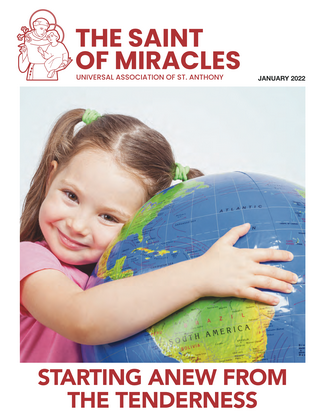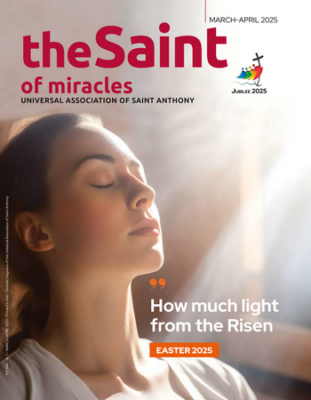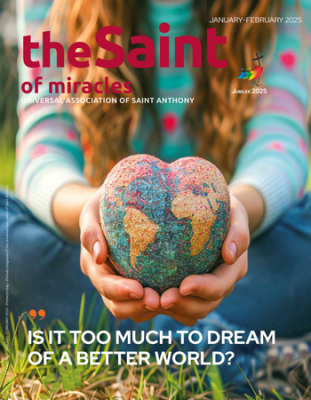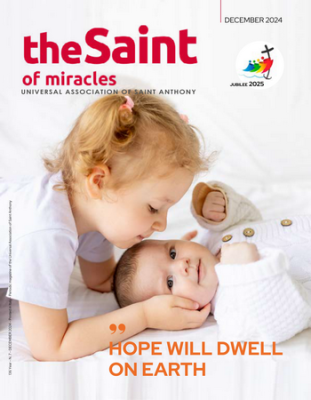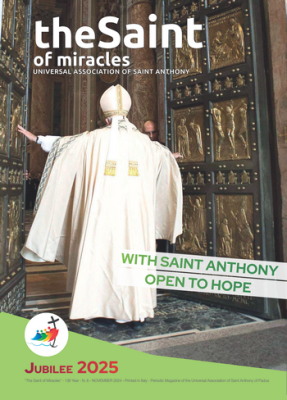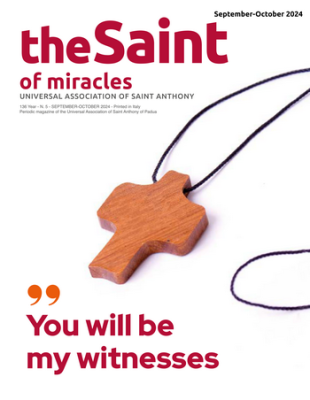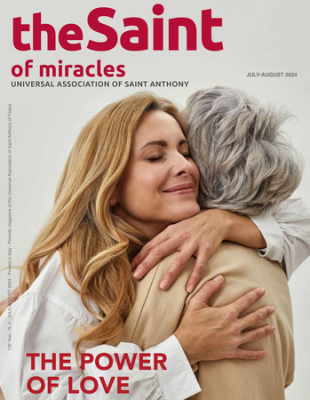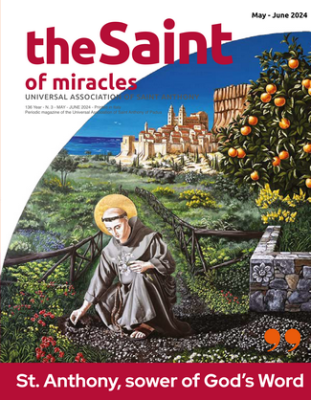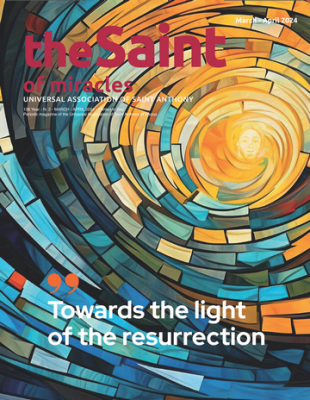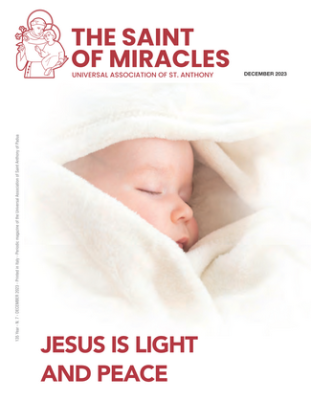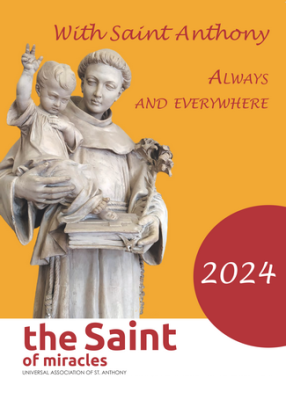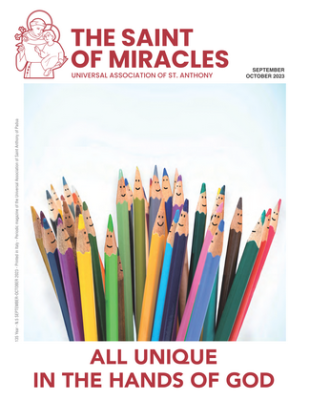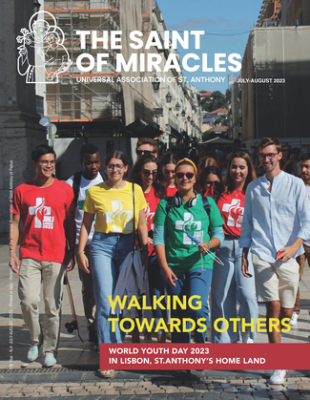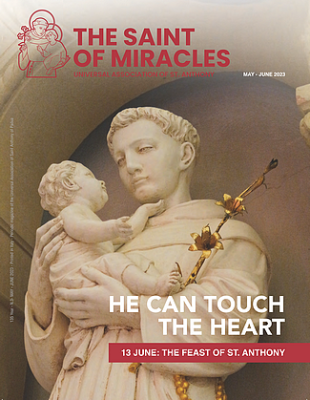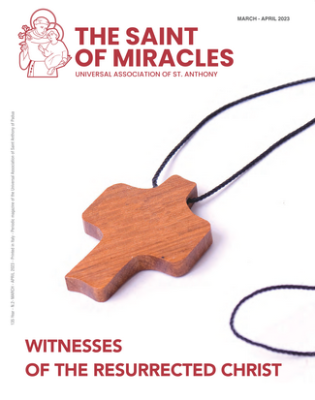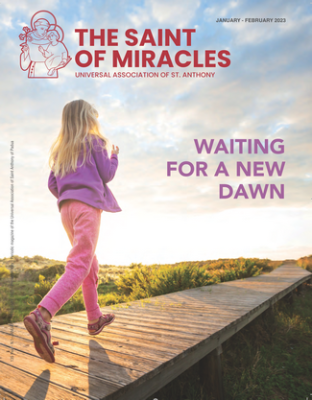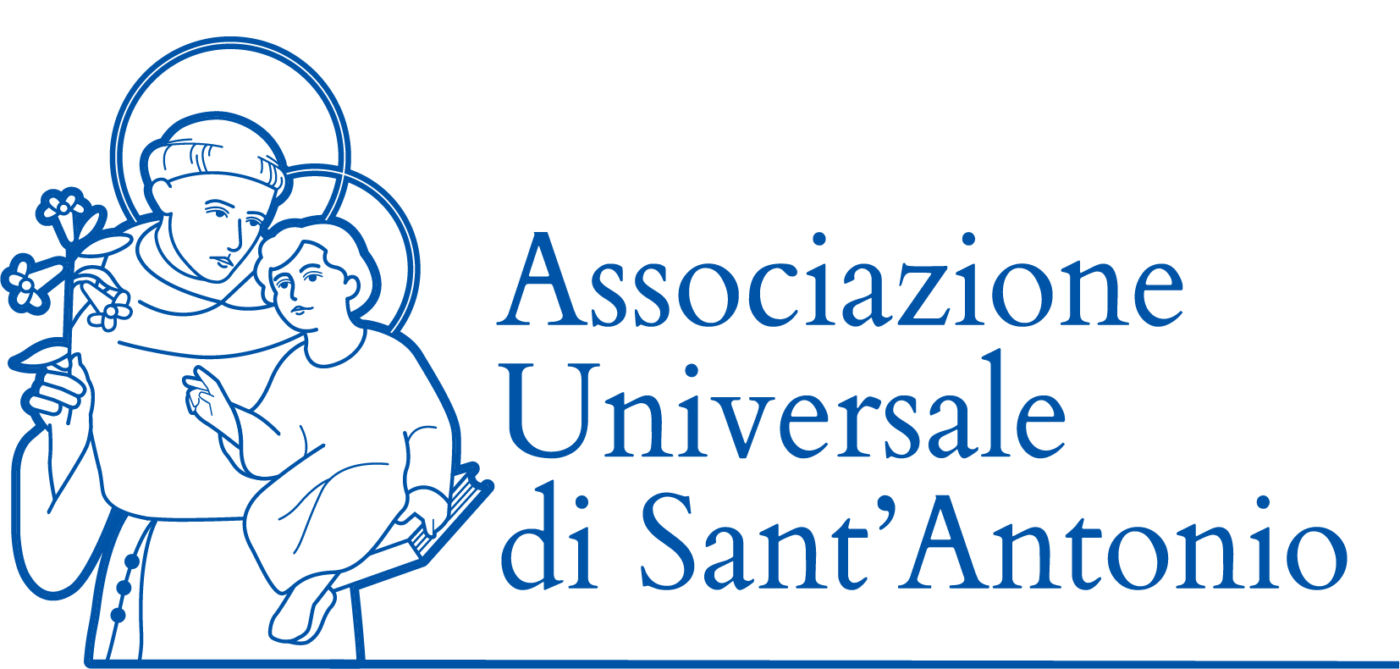Year 134 - January 2022Find out more
God’s caress
Fr. Livio Tonello, director

We have just celebrated Christmas and Epiphany, the mystery of God who bows over man to the point of being born into poverty and becoming a man among men. A child has no defences and needs love and care: the Creator wanted to take on the shape of a child in Jesus to be touched and seen, making his greatness small. On the day of the Baptism of our Lord that marks the end of the liturgical Christmas season and that the Church celebrates on 9 January, Jesus’ public life begins.
And it begins precisely with his baptism in the River Jordan: the liturgy takes a chronological leap of about thirty years: the years of the “hidden life” in the dimension of daily life without standing out. It is a fine message for us: it reveals the greatness of daily life, the importance in God’s eyes of every gesture and moment of life, even the simplest, even the most hidden. The Gospel takes us to the banks of the Jordan river where John the Baptist baptises with the water announcing that somebody will come and baptise in the Holy Spirit and that he is not worthy of untying the laces of his sandals.
This image makes us reflect in our time of manipulation, of incertitude and of offence against God’s name. Jesus waits to be baptised among the penitent, the poor, the sinners and the marginalised even if he is not a sinner himself; he supports them and he waits with them to be baptised. John’s baptism consisted in a penitential rite; it was a sign of one’s willingness to convert, to be better, asking forgiveness of one’s sins.
Jesus surely did not need it. John is initially reluctant to baptise him but Jesus insists because he wants to be with the sinners: for this reason he gets in line with them and does the same thing they do. It is Jesus’ way as Pope Francis affirms: “Jesus tells us that he does not save us from on high, with a sovereign decision or act of force, a decree, no: he saves us by coming to meet us and taking our sins upon himself.
This is how God conquers the world’s evil: by humbling himself, taking charge of it. It is also the way that we can lift up others: not by judging, not by suggesting what to do, but by drawing near, empathizing, sharing God’s love. Closeness is God’s way with us”. After the Baptism the heavens open wide and the Spirit descends on him like a dove. And a voice comes from heaven, “You are my beloved Son; with you I am well pleased”.
Then Pope Francis underlines: “God manifests himself when mercy appears, because that is his face. Jesus becomes the servant of sinners and is proclaimed the Son”. It also applies to us: in each act of service, in every work of mercy we perform, God manifests himself. With the baptism every life is entrusted to the All Mighty who is more powerful than the dark evil strength. But even those who are not baptized always receive God’s mercy, because God is there. We are “marked” by his mercy He draws near, “he caresses us with his mercy”.


 Italiano
Italiano Français
Français